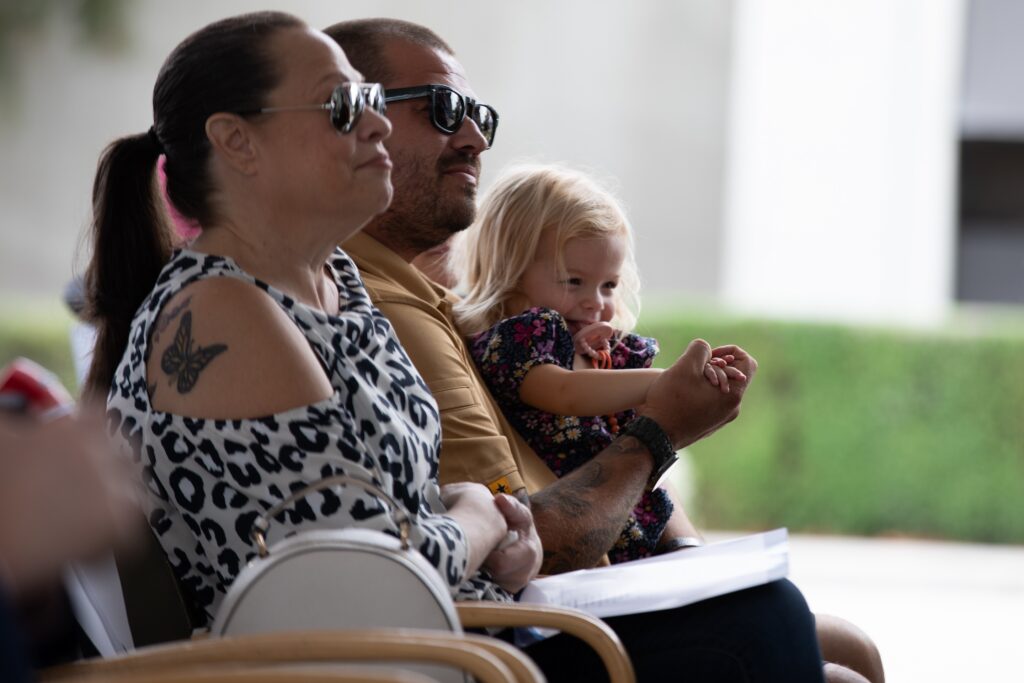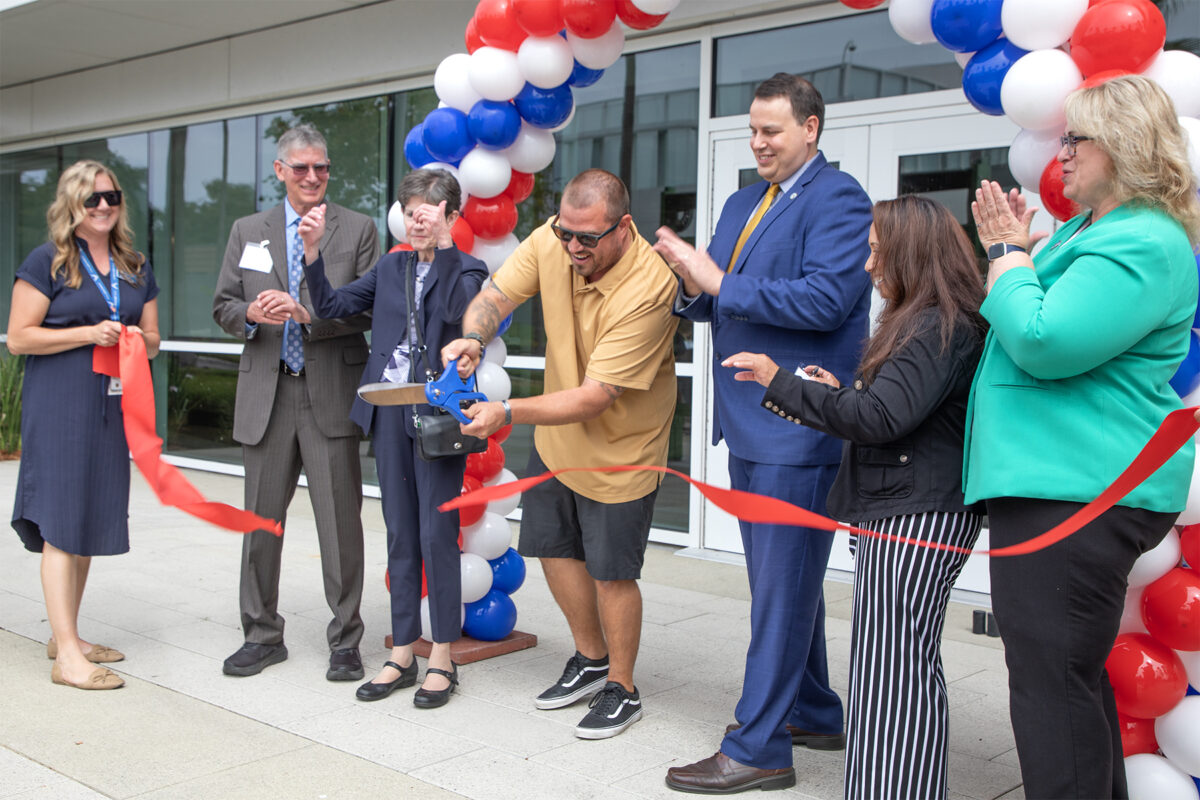A ceremony on Thursday heralded the new mental health facilities at the Tibor Rubin VA Medical Center in Long Beach, touted by officials there as the national example of future psychiatric care for the military.
The two buildings add 160,000 square feet of space for counseling and other services at the center, allowing the hospital to consolidate its mental health wing under two roofs.
Previously, inpatient and outpatient services were scattered throughout different floors and wings of the medical center. There are also 15 more inpatient beds, now at 45 total.
Officials hope this will cut wait times as the hospital strives to admit new patients within 20 days.
“We’re a little bit over that right now, but we’ve been working really hard on it, and have dropped our wait time in the last few months by close to 10 days,” said Dr. Larry Albers, the center’s chief of psychiatry and mental health.
Dr. Carolyn Clancy, the day’s keynote speaker, said the buildings’ architecture was “designed to make patients feel more at home and provide better privacy” when needed.
During a tour, officials touted the abundance of natural light, spacious common areas for group therapy and classes, a new dedicated women’s health space and space for telehealth services to remote patients. Forty-one of the 45 inpatient beds will have a private restroom and shower.
Construction, which began in late 2018, cost $175 million and was mostly completed as of Thursday. New patients will be admitted starting Sept. 8, according to a VA spokesperson.
It comes as construction is underway or near completion for a multi-story parking garage and a new community living center that should finish within the next year.
The Veterans Affairs hospital in Long Beach is one of the largest in the nation, a 100-acre campus that treats 64,000 veterans, including more than 20,000 veterans with mental health needs, each year. With 300 essential staff, including more than 150 clinicians, the hospital regularly deals with those suffering from PTSD, mood disorders, addiction, suicidal ideation and severe mental illnesses.
There are an estimated 220,700 veterans in Los Angeles County alone, according to the U.S. Census.
“Our veterans deserve nothing less than the best level of care available,” said Walt Dannenberg, the center’s director.

Among those on the initial tour was Christopher Louie, a U.S. Marine veteran who served from 2008 to 2012, with combat deployment in Sangin, a town in the Helmand province of Afghanistan.
In a teary-eyed speech, and with his wife and child watching in the audience, Louie said the center played an incomparable role in readjusting him to civilian life.
“The lessons I learned along the way have not only guided my professional path, but also enriched my relationship with my wife, kids and my family,” Louie told the crowd. “It is truly an honor on behalf of those who serve and sacrifice for our country.”
If you’re a veteran in crisis or concerned about one, contact the Veterans Crisis Line to receive 24/7 confidential support. You don’t have to be enrolled in VA benefits or health care to connect. To reach responders, dial 988, then press 1. Chat online here, or text 838255.

